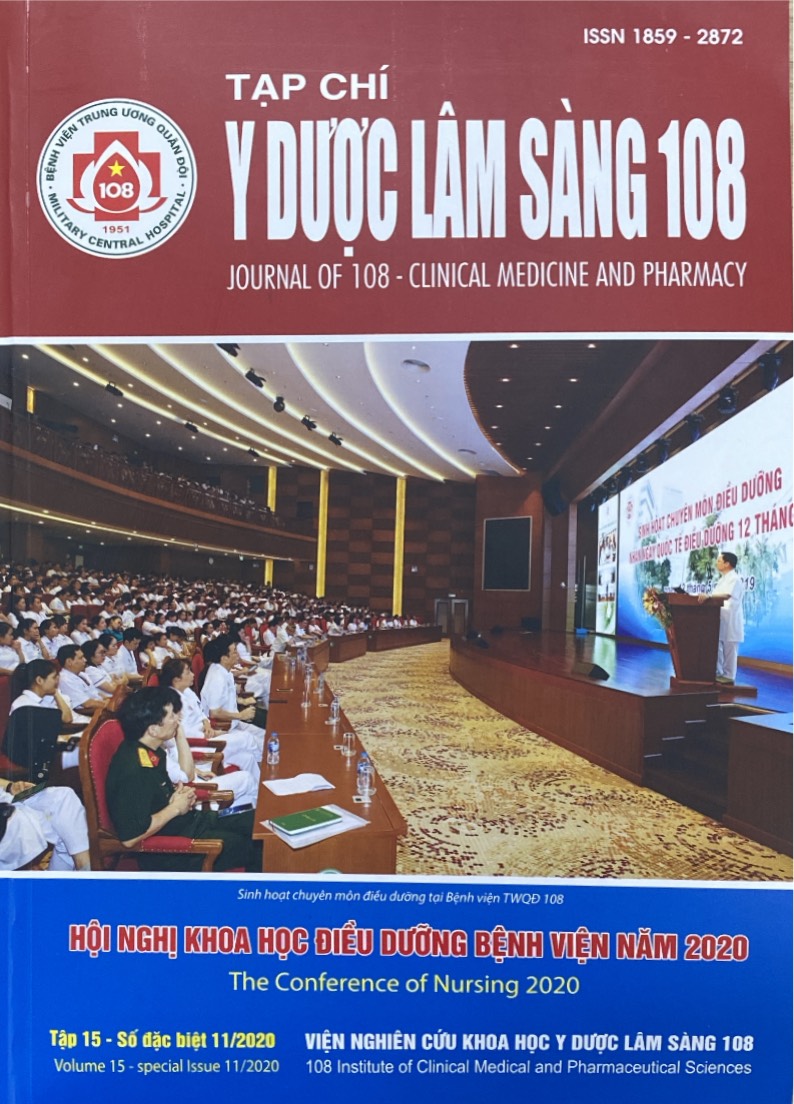Biểu hiện trầm cảm và một số yếu tố liên quan ở các bệnh nhân sau đột quỵ não tại Viện Y học Cổ truyền Quân đội và Bệnh viện Lão khoa Trung ương
Main Article Content
Keywords
Abstract
Objective: To describe the post-stroke depression situation among inpatients in the Military Institute of Traditional Medicine and National Geriatric Hospital in 2018 - 2019 and Examine several factors associated with post-stroke depression. Subject and method: A cross-sectional study design was utilized among 111 post-stroke inpatients who treated and rehabilitated in the Military Institute of Traditional Medicine and National Geriatric Hospital by PHQ-9 screening tool. Result: Post-stroke depression was found at 57.7% participants after screening. Several factors were significantly associated with post-stroke depression as economic status, patient’s role in family changed after stroke, dysphasia, aphagia, effectiveness of rehabilitation, the functional independence, patient perception of stroke, perceived of social support and patient’s satisfaction with nursing care quality (p<0.05). Conclusion: Post-stroke depression among inpatients was high. Patients who have high perception of changed in role in family, low social support and negative perception of stroke get highly risk of post-stroke depression
Article Details
References
2. Francisco JC (2010) Post-stroke depression: Can prediction help prevention? Future Neurol 5(4): 569-580.
3. Fu-ying Z,Ying-ying Y, Lei L et al (2018) Clinical practice guidelines for post-stroke depression in China. Brazilian Journal of Psychiatry.
4. Hackett ML, Kristen P (2014) Part I: frequency of depression after stroke: An updated systematic review and meta-analysis of observational studies. Int J Stroke 9(8): 2017-2025.
5. Haghgoo HA, Elmira SP, Ali SH et al (2013) Depression, activities of daily living and quality of life in patients with stroke. Journal of the Neurological Sciences 328: 87-91.
6. Halina SJ, Danuta M, Anna B et al (2010) Predictors of depressive symptoms in patients with stroke – a three-month follow-up. Neurologia 44(1): 13-20.
7. Llorca GE, Castilla G, Fernandez M et al (2014) Post-stroke depression: An update. Neurologia 30: 23-31.
8. Ning S, Qiu-Jie L, Dong-Mei L et al (2014) A Survey on 465 patients with post-stroke depression in China. Archives of Psychiatric Nursing 28(6): 368-371.
9. Robinson GR, Ricardo EJ (2016) Post-stroke depression: A review. Am J Psychiatry 173(3): 221-231.
10. Yu S, Dongdong Y, Yanyan Z et al (2017) Risk factors for Post- stroke depression: A meta-analysis. Frontiers in Aging Neuroscience 10.
 ISSN: 1859 - 2872
ISSN: 1859 - 2872
